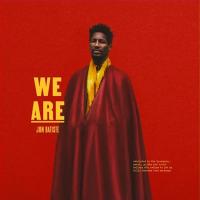DAMN! That's some feel good music. That video is a real pick me up too! Well done and an excellent review for a recording I would have passed over. Now I'll dig much deeper.
I've only looked at John as a quirky side kick to Stephen Colbert. I knew of his musical talents but had little interest. Thanks for shedding some great light on this performer. Again.....Well done!









